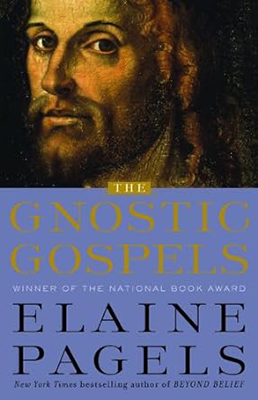The Gnostic Gospels
“The Gnostic Gospels” is a book by Elaine Pagels, published in 1979. It explores the discovery and significance of ancient Gnostic texts, particularly the Nag Hammadi Library, and their implications for understanding early Christianity. Here’s a summary:
Main Themes:
Gnosticism: Pagels introduces the concept of Gnosticism, a diverse and complex religious movement that emerged alongside early Christianity. She explores the central tenets of Gnostic belief, including the idea of gnosis, or spiritual knowledge, as a means of salvation, and the dualistic worldview that posits a radical separation between the material and spiritual realms.
Nag Hammadi Library: Pagels discusses the discovery of the Nag Hammadi Library in Egypt in 1945, a collection of ancient Gnostic texts dating from the 2nd to 4th centuries CE. She examines the contents of these texts, which include gospels, apocalypses, and other religious writings, shedding light on the diversity of Gnostic beliefs and practices.
Alternative Christianities: Drawing from the Gnostic texts, Pagels explores the existence of alternative Christian communities in the early centuries of the Common Era. She argues that these communities represented a diverse spectrum of beliefs and practices, challenging the notion of a monolithic and unified early Christianity.
Orthodox vs. Gnostic Christianity: Pagels contrasts the theology and worldview of orthodox Christianity, as represented by the New Testament canon, with that of Gnostic Christianity. She highlights the theological differences between the two traditions, particularly in their understandings of God, salvation, and the nature of the material world.
Key Concepts:
– Salvation through Knowledge: Pagels examines the Gnostic emphasis on gnosis, or spiritual knowledge, as the key to salvation. She explores how Gnostics sought to transcend the limitations of the material world through mystical experiences and revelations.
– Gender and Power: Pagels discusses the role of gender and power dynamics within Gnostic communities, noting the presence of female leaders and the emphasis on gender equality in some texts. She explores how Gnostic ideas about gender and sexuality differed from those of orthodox Christianity.
– Reception and Influence: Pagels reflects on the reception and influence of Gnostic texts within Christianity and beyond. She considers how these texts have been interpreted, marginalized, and rediscovered throughout history, influencing movements such as Renaissance humanism, Romanticism, and modern spirituality.
Legacy:
“The Gnostic Gospels” has had a significant impact on scholarship and popular understanding of early Christianity and Gnosticism. Pagels’s work has helped to illuminate the diversity of religious thought in the ancient world and to challenge traditional narratives about the origins of Christianity. The book continues to be a seminal work in the study of Gnosticism and the history of Christian spirituality.

